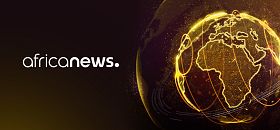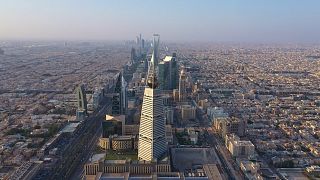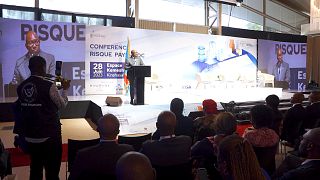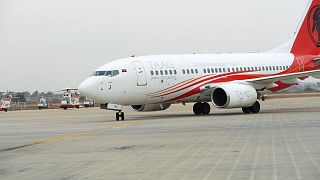EU-Africa
After two days of intense discussions, the summit between the European Union and the African union ended on a positive note. Leaders spoke of a renewed partnership, and major investments were announced. But questions remain as to the actual impact this summit will have for the people of both continents.
"A new state of mind"
A joint vision for 2030 based on mutual respect and equality. That was one of the key goals of the 70 diplomatic delegations that had gathered in Brussels. For the African Union, this required a fundamental shift in the relationship between Africa and Europe.
Senegal's president Macky Sall said: "We need to bring a new state of mind to euro-African ties, based on a true vision of partnership, and not just on a relationship based on aid."
Sharing that ambition, the President of the European Commission Ursula von der Leyen announced a major investment for Africa over the next 7 years.
"The first regional plan under our big investment strategy global gateway is the Africa-Europe plan with more than 150 billion euros of investment."
How these funds will be mobilised is still unclear, but the EU says they will help finance the green transition, jobs and education.
Africa's digital economy
Another major area of investment is the digital sector. With only 25% of the African population connected to the internet, many governments, including the Democratic Republic of Congo, say they are already tackling the obstacles that stand in the way of a digital economy.
Explaining the scale of the current challenge, DRC Minister for digital economy Désiré Cashmir Eberande Kolongele told Euronews: "We have a problem, we must absolutely regulate digital activity on the continent. That means having clear rules that specify conditions of access. The second problem is a problem regarding content. We need to make sure that the applications that will be developed in the digital sector answer to people’s needs.
To achieve this digital future, the DRC plans to cooperate on an international tax on tech giants, and establish fair trade practices with its partners. Others at the summit urged Europe to tap into Africa's huge potential.
"There is a lot of human capital, young people living there, female entrepreneurs, the strength of women in the African economy when it comes to innovation and technology. And the EU should be the trading partner for the continent," said Dutch MEP, Samira Rafaela.
In Brussels, the finance minister of the DRC signed an agreement with a consulting firm and the French development agency. Under this deal, 600.000 euros will be allocated to the elaboration of a national plan for the development of digital infrastructures.
And the Congolese government was clear, digital transformation will be key to modernising the DRC’s economy, especially in fields like agriculture.
"The ambition of the government is to make sure that agriculture and the agro-industry take back their place and to do that we need farmers, small and big, who use modern means and methods to strengthen their productivity," said Nicolas Kazadi, DRC Finance Minister.
While building sustainable agri-food systems is a source of concern in many parts of Africa, another pressing issue, deeply interconnected with that, is climate change.
And with its rich ecosystem, DRC's prime minister Jean-Michel Sama Lukonde was adamant his country could take a leading role in this global fight.
"We know that we have the potential, at least in terms of our environment, which can be an answer to these threats and maintain global warming to 1.5 degrees."
COVID-19 solidarity
While Europe and Africa agreed on the need to fight global warming together, another important topic yet to find common ground was better cooperation to beat the pandemic. Only 11% of the African population is fully vaccinated against the virus.
African leaders have accused Europeans of hoarding vaccine doses. But the main point of contention was the EU’s refusal to lift intellectual property rights on vaccines and other products.
South Africa's president Cyril Ramaphosa was stinging in his criticism of that position.
"We are talking about the lives of millions, hundreds of millions of people, rather than the profitability of a few companies," he said.
In spite of the current divide, the leaders of both continents said they would continue working together in the coming months to find a solution on COVID vaccines. And despite those differences, the delegations left the summit satisfied and committed to a better partnership.











Go to video
AU names Burundian president special envoy for Sahel region
Go to video
EU ministers warn of countermeasures to US tariffs if trade negotiations fail
01:56
EU foreign ministers discuss deal with Israel to increase Gaza aid
01:42
Gaza conflict overshadows EU-Southern Neighbourhood talks in Brussels
Go to video
Greece cracks down on irregular migration, says it’s "not an open corridor to Europe"
00:42
EU says diplomatic incident with Libya "a protocol issue"